Personally signed by Ray Bradbury directly onto the title page.
A SIGNED FIRST EDITION OF THE AUTHOR'S DEBUT BOOK

Arkham House, Sauk City, 1947 Ray Bradbury "Dark Carnival". First Edition, First Printing. Personally signed by the author Ray Bradbury directly onto the title page of the book. Octavo, cloth. The author's first book. Includes custom matching tray-case along with bookseller issued COA. The dust-jacket is not price-clipped and still shows price of $3.00.
Dark Carnival collects twenty-seven stories, most first appearing in magazines, sixteen from WEIRD TALES. Six stories are published here for the first time; "The Maiden," "The Emissary," "Jack-in-the-Box," "Uncle Einer," "The Night Sets," and "Next in Line." Barron (ed), Horror Literature 3-34. Bleiler, The Guide to Supernatural Fiction #254. Tymn (ed), Horror Literature 4-42.
Dark Carnival is a short story collection by American writer Ray Bradbury, first published October 1947 by Arkham House. It was his debut book, and many of the stories were reprinted elsewhere.

Contents
"The Homecoming"
"Skeleton"
"The Jar"
"The Lake"
"The Maiden"
"The Tombstone"
"The Smiling People"
"The Emissary"
"The Traveler"
"The Small Assassin"
"The Crowd"
"Reunion"
"The Handler"
"The Coffin"
"Interim"
"Jack-in-the-Box"
"The Scythe"
"Let's Play 'Poison'"
"Uncle Einar"
"The Wind"
"The Night"
"There Was An Old Woman"
"The Dead Man"
"The Man Upstairs"
"The Night Sets"
"Cistern"
"The Next In Line"
Reviews
From Publishers Weekly
Once to be titled The Child's Garden of Terrors, Bradbury's first story collection rolls back into town, spinning stardust and cobwebs in its wondrous wake. Originally published by Arkham House in 1947, this deluxe reissue features historical notes by John Eller, an introduction and individual story notes by the master himself and a glowing afterword by Clive Barker. Obsessed with death, old age and a longing to retain the eternal child in all of us, Bradbury once described himself as the "quasi god-son of Edgar Allan Poe," though Poe lacked the gift of humor that has helped shape Bradbury's seductive shadows. "You are only eight years old, you know little of death, fear, or dread," writes Bradbury in "The Night" as he powerfully encapsulates in a neat eight pages a child's first discovery of the unknown. Other standouts include the penultimate scary carnival story, "The Jar"; the Elliot family tales, "Uncle Einar," "The Homecoming" and "The Traveler"; "The Small Assassin," a sinister story far more frightening than Rosemary's Baby; the stunning "Jack-in-the-Box," one of the best parental abuse stories ever written; the harrowing "The Next in Line"; and "Reunion," which uses the simple metaphor of a washing machine in its probing depiction of the grieving process. Magazine covers precede each story with the exception of "The Lost Stories," four pieces rescued from pulp oblivion, while reproductions of manuscript errata illuminate the gestation process of the legendary first edition. Well worth the price of admission and certain to be on discerning Christmas lists. (Dec.)published a collection of poems and essays, A Chapbook for Burnt-Out Priests, Rabbis, and Ministers (Forecasts, Mar. 19), and a novel, From the Dust Returned (Forecasts, Aug. 27).
Copyright 2001 Cahners Business Information, Inc.
About the Author
Ray Douglas Bradbury (August 22, 1920 - June 5, 2012) was an American fantasy, horror, science fiction, and mystery writer. Bradbury is credited with writing 27 novels and over 600 short stories. More than eight million copies of his works, published in over 36 languages, have been sold around the world.
Predominantly known for writing the iconic dystopian novel Fahrenheit 451 (1953), and his science-fiction and horror-story collections, The Martian Chronicles (1950), The Illustrated Man (1951), and I Sing the Body Electric (1969), Bradbury was one of the most celebrated 20th- and 21st-century American writers. While most of his best known work is in fantasy fiction, he also wrote in other genres, such as the coming-of-age novel Dandelion Wine (1957) and the fictionalized memoir Green Shadows, White Whale (1992).
Bradbury also wrote and consulted on screenplays and television scripts. He wrote the screen play for John Huston's classic film adaptation of Moby Dick, and was nominated for an Academy Award. He adapted sixty-five of his stories for television's The Ray Bradbury Theater, and won an Emmy for his teleplay of The Halloween Tree. He was the recipient of the 2000 National Book Foundation Medal for Distinguished Contribution to American Letters, the 2004 National Medal of Arts, and the 2007 Pulitzer Prize Special Citation, among many honors.
Upon his death in 2012, The New York Times called Bradbury "the writer most responsible for bringing modern science fiction into the literary mainstream." The Los Angeles Times credited Bradbury with the ability "to write lyrically and evocatively of lands an imagination away, worlds he anchored in the here and now with a sense of visual clarity and small-town familiarity." Bradbury's grandson, Danny Karapetian, said Bradbury's works had "influenced so many artists, writers, teachers, scientists, and it's always really touching and comforting to hear their stories". The Washington Post noted several modern day technologies that Bradbury had envisioned much earlier in his writing, such as the idea of banking ATMs and earbuds and Bluetooth headsets from Fahrenheit 451, and the concepts of artificial intelligence within I Sing the Body Electric.
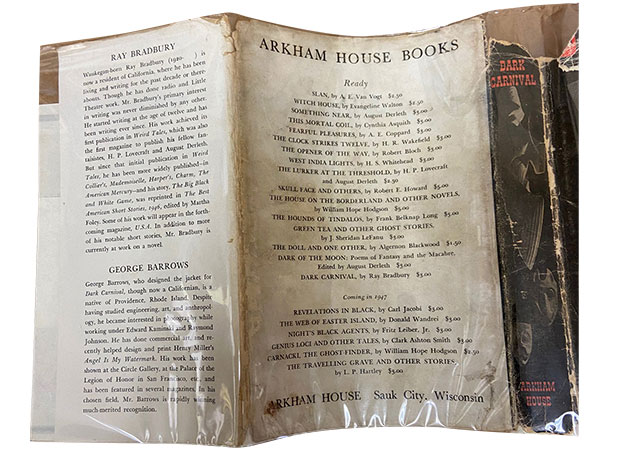
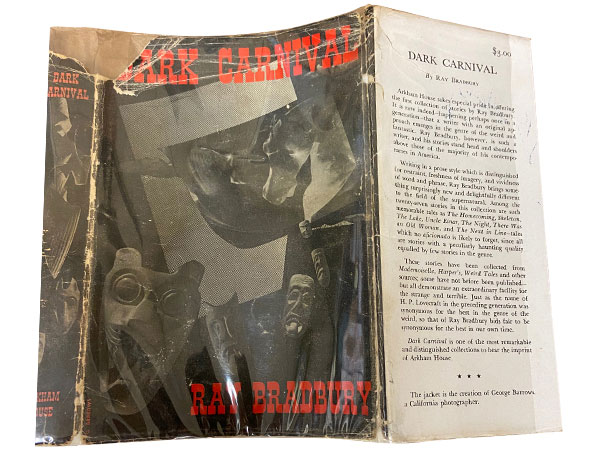
Signature Authenticity
Lifetime Guarantee of Signature Authenticity. Personally signed by Ray Bradbury directly onto the title page of the book. The autographs are not facsimiles, stamps, or auto-pens.- Publisher:
- Arkham House 1947
- Edition:
- First Edition, First Printing
- Binding:
- Hardcover with cloth
- Author:
- Ray Bradbury



















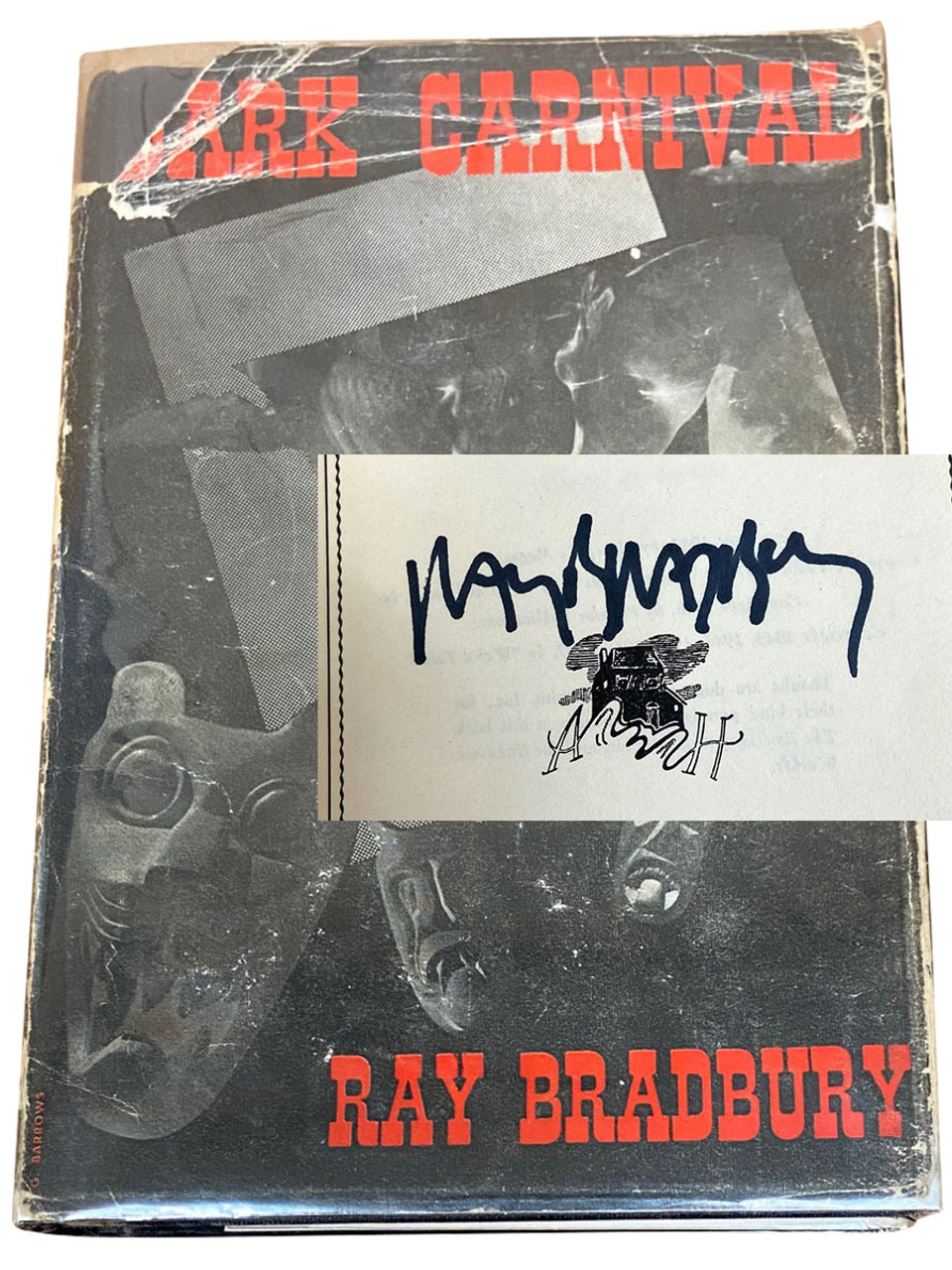

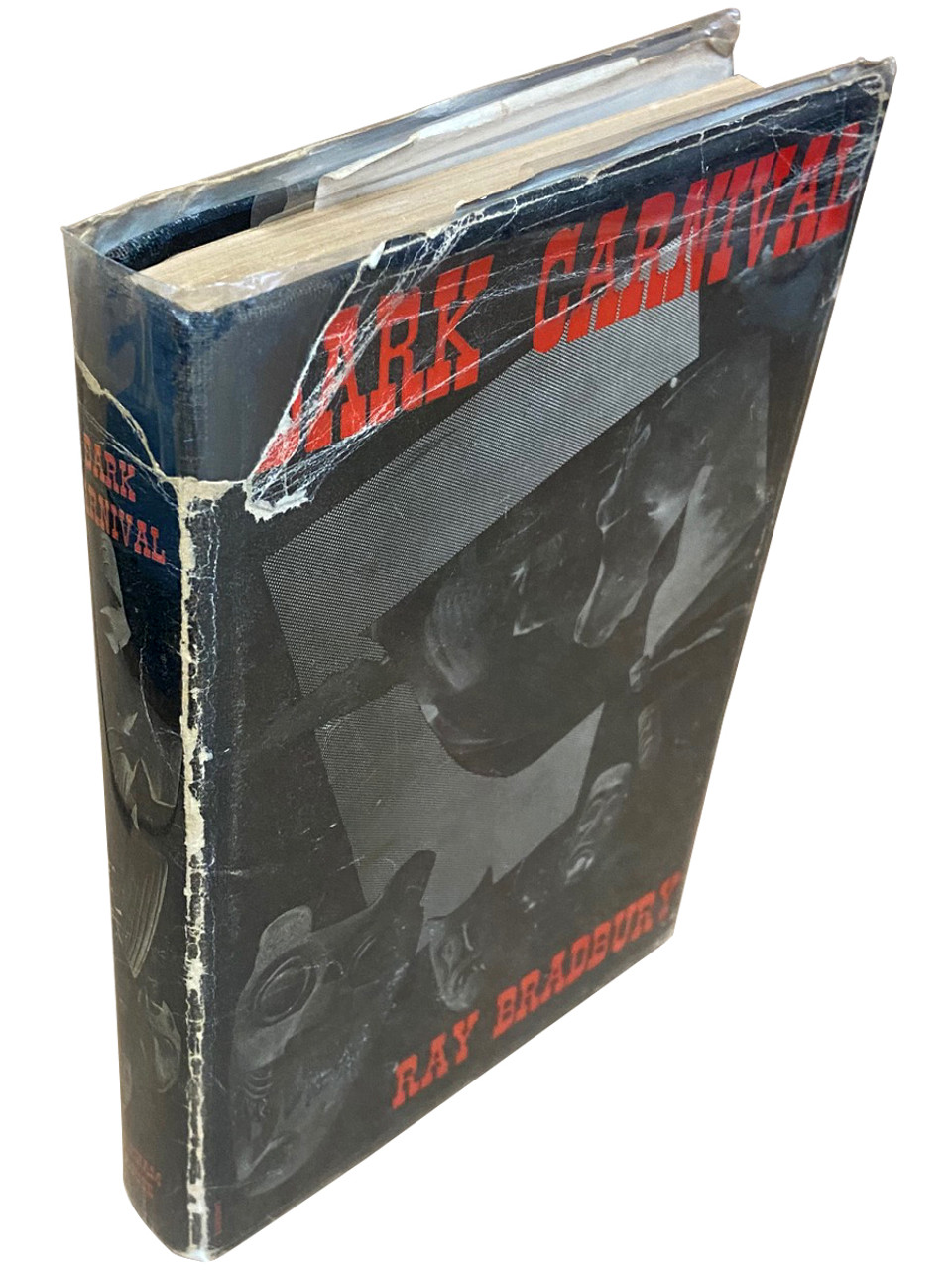



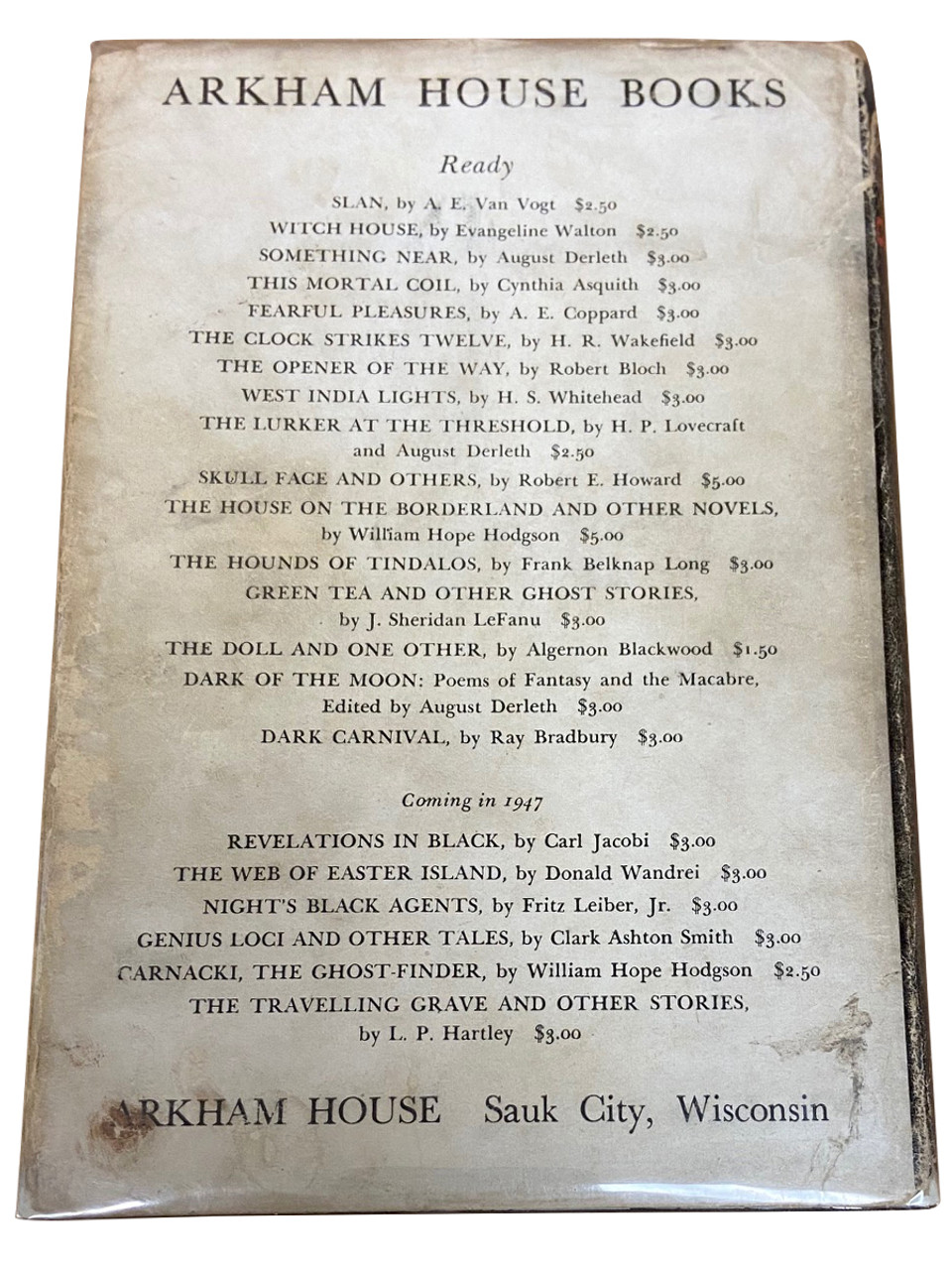
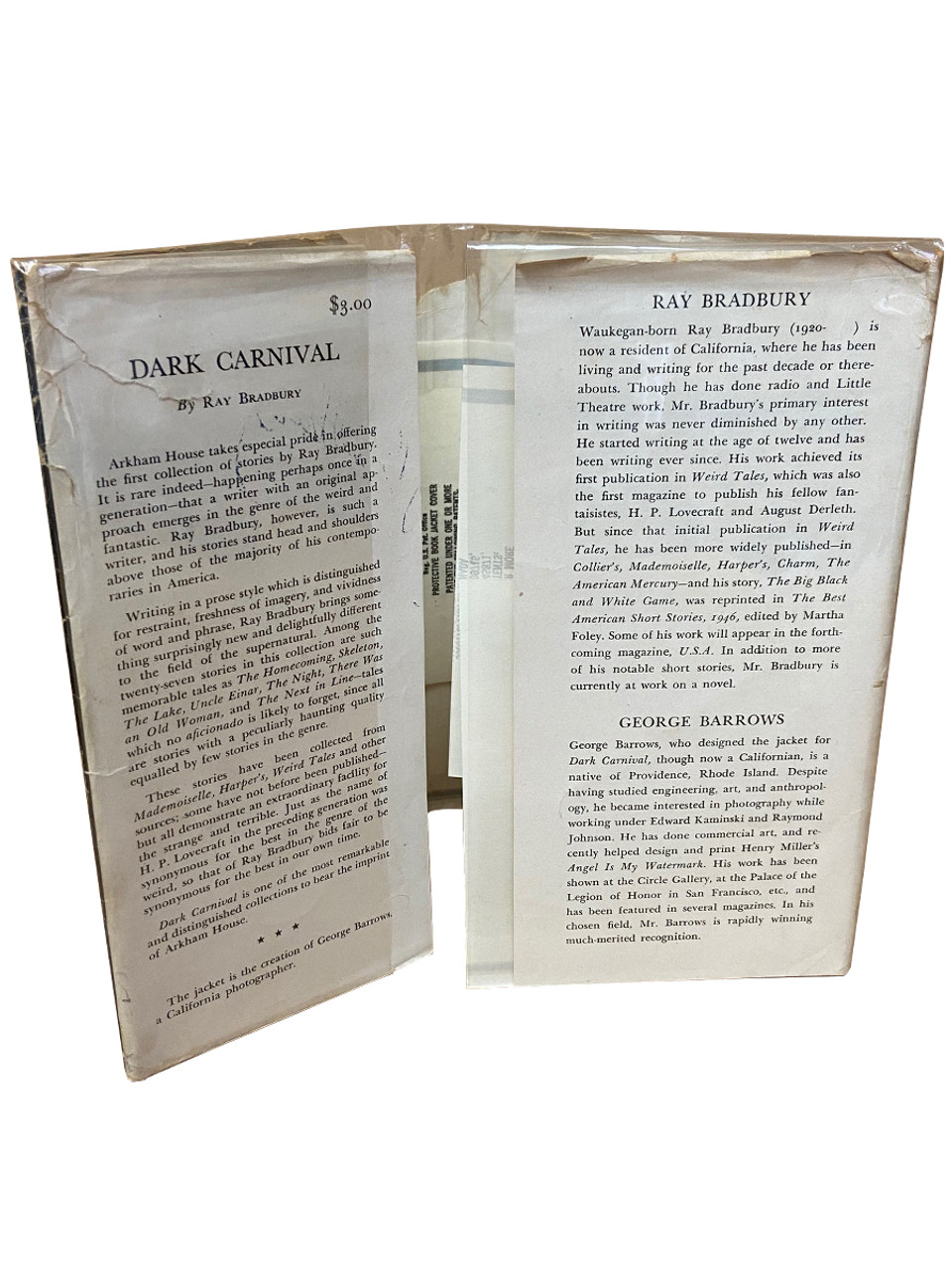


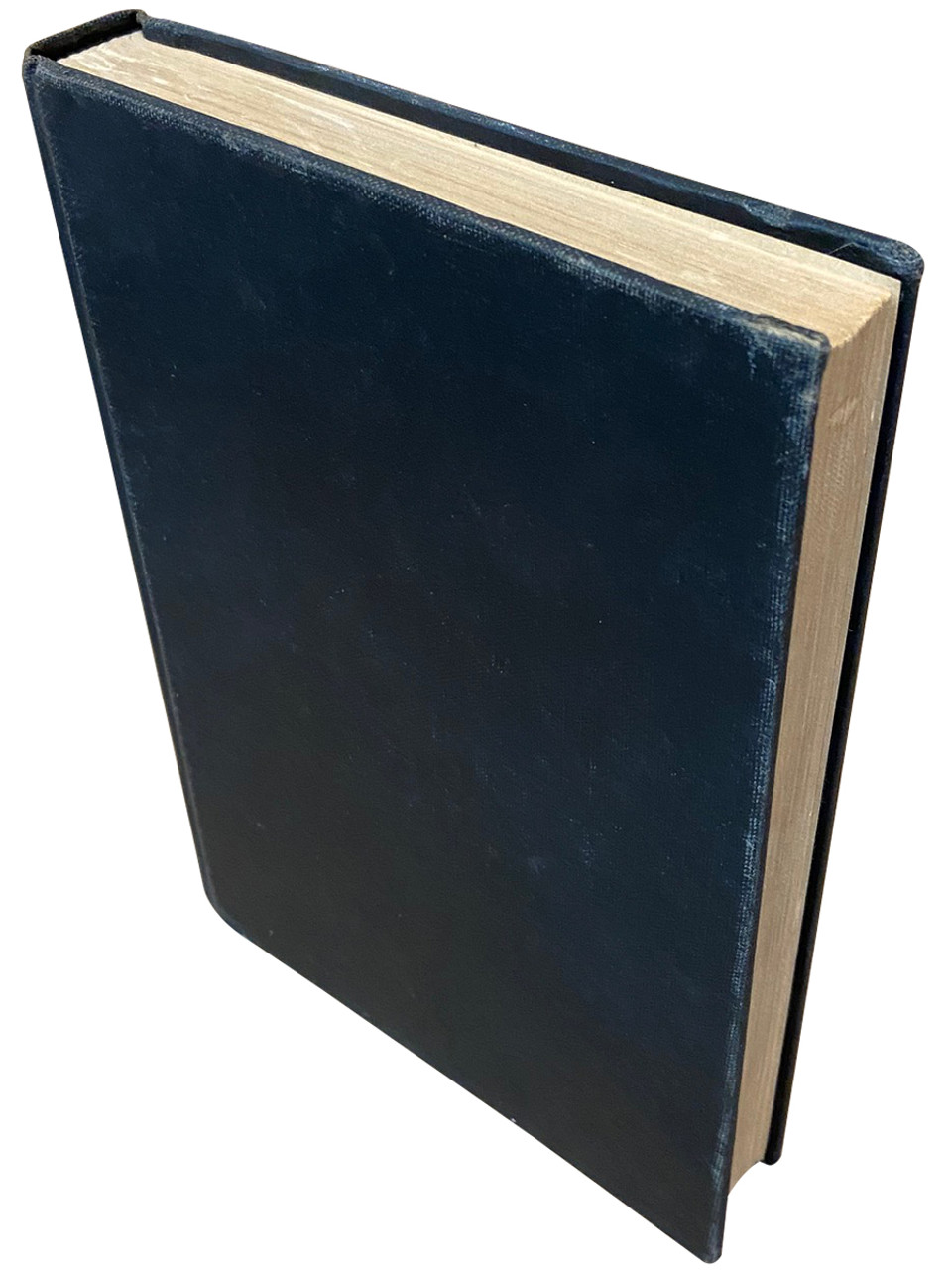





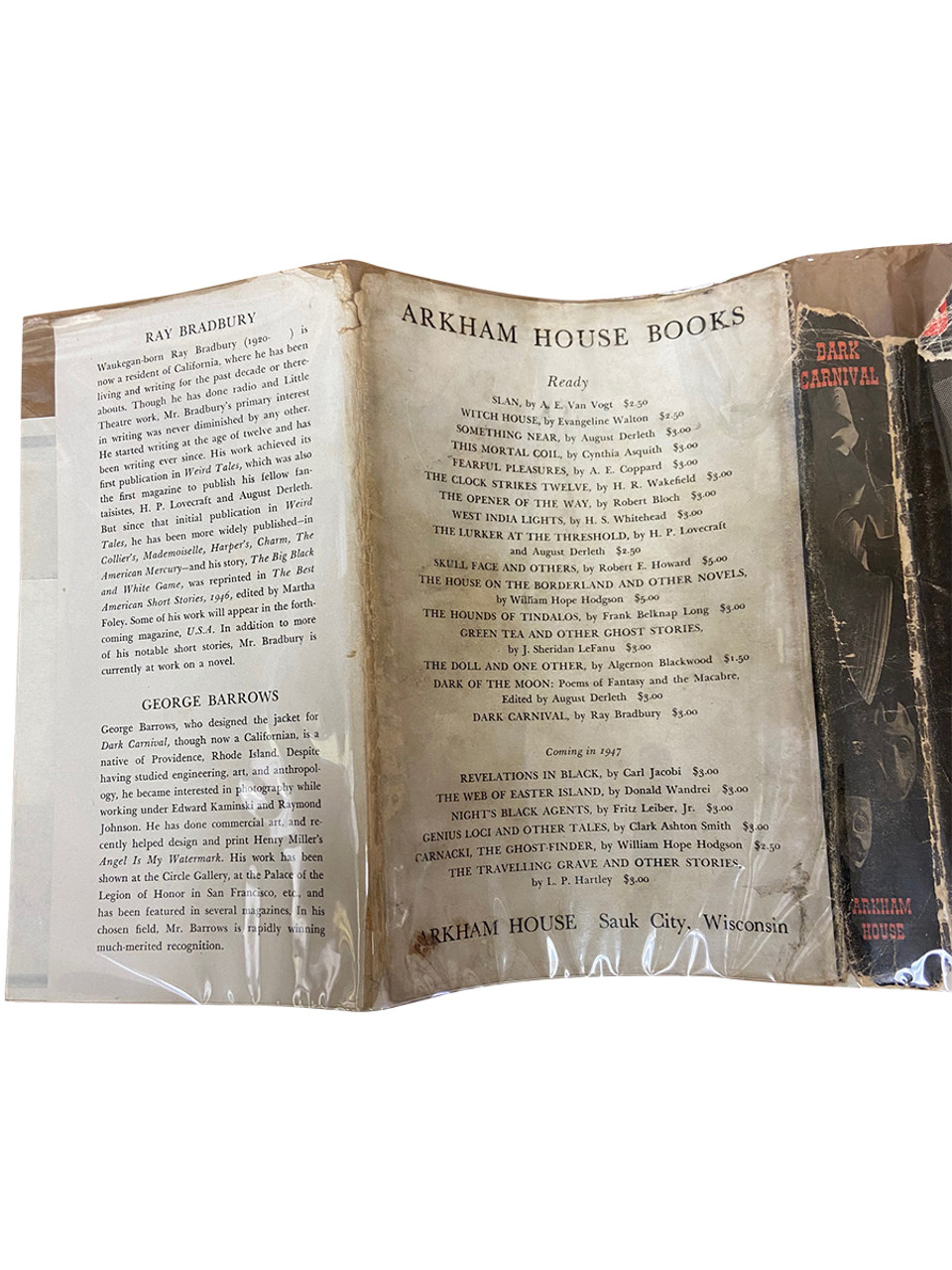

![Ray Bradbury "Leviathan '99" Signed First Edition w/COA [Sealed] Ray Bradbury "Leviathan '99" Signed First Edition w/COA [Sealed]](https://cdn11.bigcommerce.com/s-eohzfjch7f/images/stencil/500x659/products/536/18113/Bradbury-Leviathan2__90497.1697126012.jpg?c=1)

![Ray Bradbury "From the Dust Returned" Signed First Edition w/COA [Sealed] Ray Bradbury "From the Dust Returned" Signed First Edition w/COA [Sealed]](https://cdn11.bigcommerce.com/s-eohzfjch7f/images/stencil/500x659/products/537/22399/IMG_2666_edited__85722.1723120146.jpg?c=1)
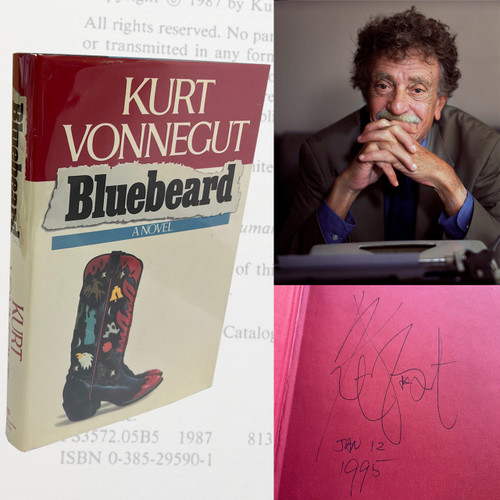

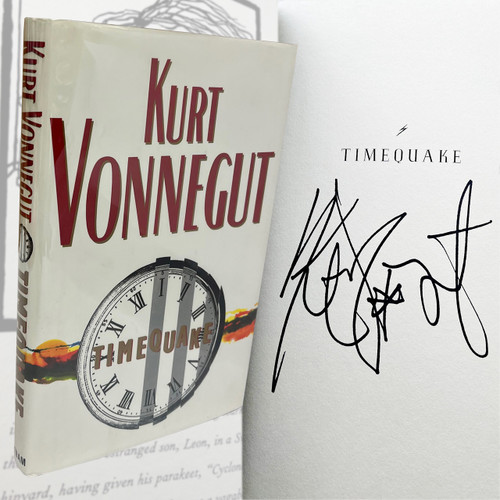

![Ray Bradbury "Bullet Trick" Deluxe Traycased Signed Lettered First Edition "BB" of 52 [Very Fine] Ray Bradbury "Bullet Trick" Deluxe Traycased Signed Lettered First Edition "BB" of 52 [Very Fine]](https://cdn11.bigcommerce.com/s-eohzfjch7f/images/stencil/500x659/products/1906/21540/1280x1280__68009.1715709045.jpg?c=1)
![Neil Gaiman "Coraline" Limited Traycased Signed First Edition, Later Printing of 25 w/COA [Sealed] Neil Gaiman "Coraline" Limited Traycased Signed First Edition, Later Printing of 25 w/COA [Sealed]](https://cdn11.bigcommerce.com/s-eohzfjch7f/images/stencil/500x659/products/3199/19275/1280x1280_02__46706.1699979416.1280.1280__69121.1705513675.jpg?c=1)